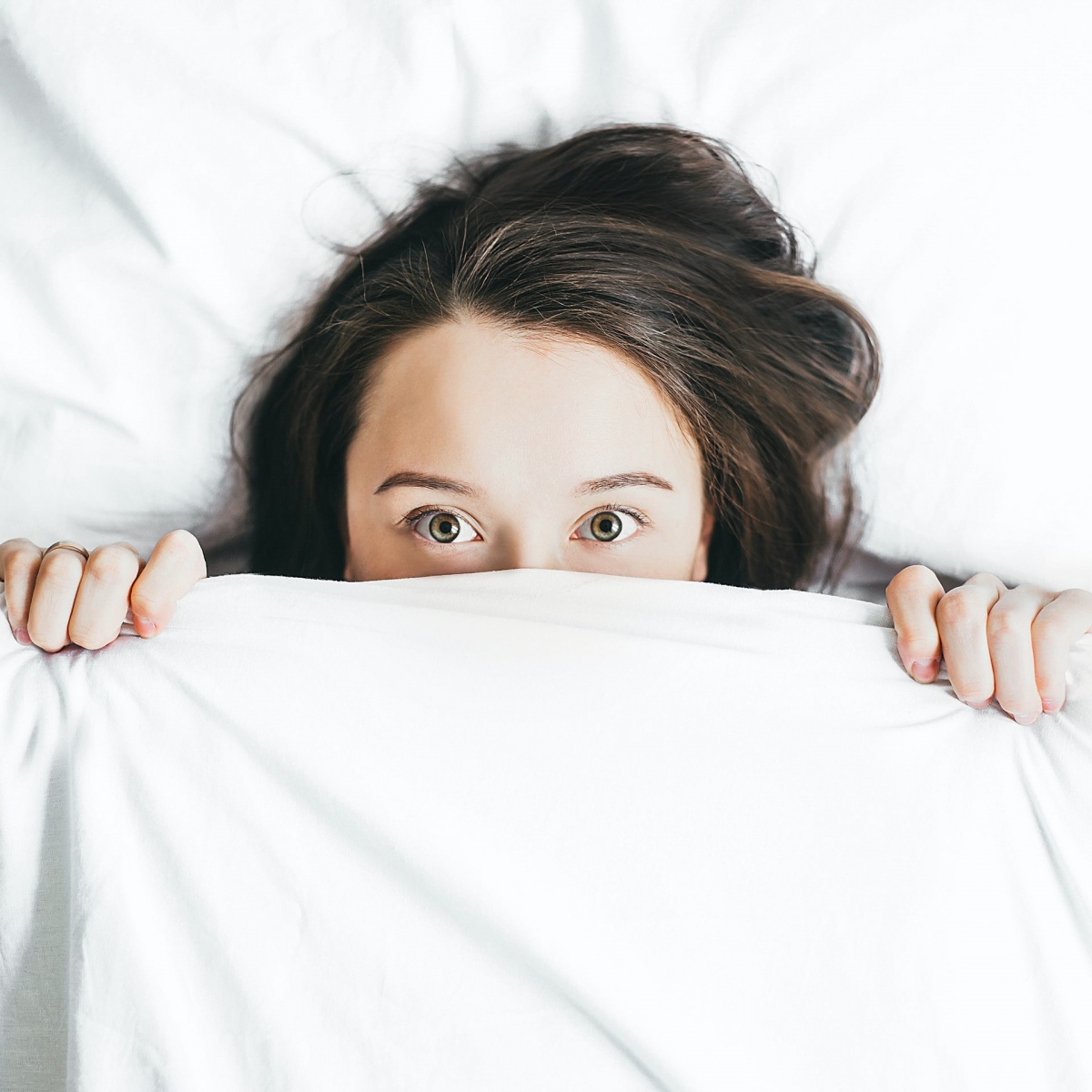Mental Health
How to Tell Whether You Have Sleep Apnea (and Why That Matters)

(Photo : Alexandra Gorn on Unsplash)
The physical and mental health benefits of a good night's sleep are well known. So if you're having trouble sleeping, you'll want to determine the cause.
Midnight snacking, post-dinner workouts, caffeine, alcohol, and too much screen time before bed are all avoidable sleep deterrents. Sleep apnea, on the other hand, is a serious health issue that can lead to even more worrisome health problems.
You need to figure out what's leaving you exhausted every day. Is it sleep apnea, or is it satisfying that late-night sweet tooth with a bowl of dark chocolate gelato? The distinction is important.
If you have stopped the avoidable no-nos and still don't feel rested, you need to talk to your doctor. Here are three signs you could have sleep apnea and why it's something you want to treat sooner rather than later.
1. You Snore Loudly
If you're sawing logs like a timber mill every night, you may suffer from sleep apnea. It's one of the most common symptoms of sleep apnea, although not everyone with the condition will snore. Snoring can be purely the result of sleep position, mouth anatomy, obesity, or the use of medications or alcohol.
In a nutshell, snoring is caused by restricted airflow when the muscles in your throat relax. As the air moves through narrowed passages, soft tissues in the nose, mouth, and throat crash into one another. That contact creates a variety of rattling, rumbling, or snorting sounds.
If your snoring is caused by sleep apnea, you need to keep the airways open to eliminate the cacophony. Continuous positive airway pressure (CPAP) therapy offers a solution. A machine providing pressure to keep your airways open is hooked to a mask or nose piece worn while sleeping.
If you think wearing a mask in bed sounds uncomfortable, we're not gonna lie - it could be. The key to getting relief from sleep disturbance while wearing one is getting the best CPAP mask for you. It's not unlike finding the perfect pair of comfortable shoes that match your style and your budget.
Don't worry what your partner may think about your wearing a mask, either. Your snoring likely disturbs the sleep patterns of others in the house, and they'll be grateful for your CPAP machine. You and everyone else will get a far more restful night's slumber.
2. You Experience Breathing Lapses
Since we've brought up sleep partners, it's a good time to talk about another symptom of sleep apnea. Many people who suffer from the condition experience lapses in breathing altogether. In other words, you cease breathing for a period before resuming.
If you have ever slept with someone with sleep apnea, these lapses are frightening. The sufferer's snoring may keep you awake and annoyed, but suddenly they're silent. Not only are they not snoring, they're not breathing at all!
Every cell of the human body requires oxygen in and carbon dioxide out. Inhaling and exhaling regularly is what makes that happen. If you aren't breathing, cells throughout your body, including your brain and cardiac and pulmonary systems, can't expel carbon dioxide.
Sleep apnea puts you at greater risk for coronary artery disease, stroke, heart attack, and high blood pressure. That's largely because respiration is critical to keeping bodily systems healthy and functioning as they should. Routine lapses over time can be deadly.
Whether breathing lapses are a symptom of your sleep apnea can be determined by a sleep partner. You could also undergo a sleep lab study or record yourself at night. Whatever method you choose to detect breathing lapses, implement it soon to discover whether sleep apnea takes your breath away.
3. You Can't Sleep at Night (but Can Throughout the Day)
Few things are more frustrating than feeling tired, going to bed, then not being able to fall or stay asleep. Few things are more embarrassing than falling asleep at work, in meetings, or during your commute. Needless to say, if it happens during your daily travels, it can also be dangerous.
One study indicates the likelihood of being a driver in a car accident increases by 2.5 times among sleep apnea sufferers. That makes you a danger not only to yourself, but to others in your vehicle or sharing the roadway. Fortunately, the same study showed those who used a CPAP machine reduced that risk by 70%.
Poor sleep, no matter the root cause, is problematic, so you should understand what constitutes good sleep. There are two phases of light sleep followed by two phases of deep sleep. Disrupt any phase by waking, and you must restart the cycle, which you don't have time to do.
Even if you stayed home from work or school the next day to catch up, it won't work. Sleep apnea isn't just a "night thing." It will disrupt your sleep cycle regardless of how tired you are or when you try to sleep.
Poor sleep quality leads to poor performance at work, at school and in life in general. Without addressing your sleep apnea, you will never get the rest you need. Instead, you'll continue to be asleep at the wheel.
Heed the Signs
Waking up with a headache is not a good way to start your day. But it's a common occurrence among those with sleep apnea. So is waking with a dry mouth, the result of gasping for air all night.
Even if you can remain awake during the day, you may be unable to concentrate or focus. You may be depressed, irritable, and easily discouraged or brought to tears. In other words, sleep apnea may make you a mess during your normal waking hours.
Some people have a greater propensity for sleep apnea than others. If you are significantly overweight, have large adenoids or tonsils, or smoke, you're more likely to experience sleep apnea. The same is true if you have a deviated septum or another condition that makes breathing more difficult.
Males and older adults are more likely to suffer from it. There is proof that the condition may run in families. Even having a larger neck than most people can make sleep apnea more likely.
If you have any of these characteristics or suffer any of these symptoms, you need to talk to your doctor. Delaying this diagnosis can be deadly. So make sure you heed the signs.
* This is a contributed article and this content does not necessarily represent the views of counselheal.com









Join the Conversation